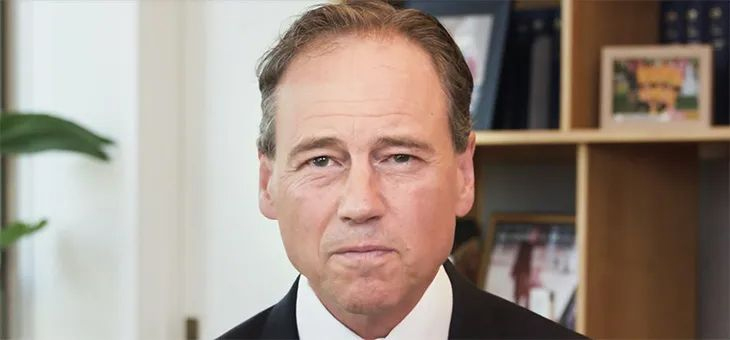With 300,000 doses of the AstraZeneca COVID-19 vaccine arriving in Australia on Sunday, the rollout is starting to speed up, and the government has revealed that it is also getting serious about tackling misinformation.
Australian health minister Greg Hunt, while announcing the arrival of the latest batch of vaccine doses, revealed that the government had established a ‘myth-busting unit’ to tackle some of the spurious claims about the vaccines.
According to Mr Hunt, the unit was established within the Department of Home Affairs last year in cooperation with the Health Department.
Read more: What we know about the recently approved single dose vaccine
“We don’t want to give too much air to, you know, some of the silliest ideas,” Mr Hunt said. “But we do want to provide public reassurance to combat in the marketplace those ideas which would in any way falsely have some impact on public confidence.
“It’s part of our job. It’s what we’re doing.”
Mr Hunt also said that there was potential for the police to become involved if the anti-vaccination movement started to break the law during their protests around the country.
Read more: Research shows vaccine willingness is high
“Some of these anti-vaxxers are peddling, frankly, false and clearly irresponsible views, whether, as I say, it’s about 5G or Bill Gates and mind control,” Mr Hunt said. “Just ludicrous, ludicrous things.
“Our job is to combat the information. We’ve seen no signs, but it is absolutely, as raised, a matter for the police if, in some way, shape, or form, there were likely to be protests aimed at the actual vaccination centres, which is, by the way, why we are respectful about the privacy of individual aged care centres and leave it to them if they wish to publicise.”
Last week, YourLifeChoices reported on research from the University of Melbourne that showed willingness to take the vaccine was very high in Australia.
Read more: Vaccine overdose cases raises questions over training
The research found that many Australians (76 per cent) reported that they were likely to get vaccinated.
Last month, The Guardian reported that the Department of Home Affairs had made more requests for pandemic misinformation to be removed from Facebook than any other government department in Australia since March last year.
More than 500 takedown requests for misinformation and scams related to COVID-19 were sent from Home Affairs, a spokesman told The Guardian.
In other vaccine news, NSW Premier Gladys Berejiklian told a press conference on Monday that while her state was on track to reach its target of 35,000 vaccinations in the first three weeks, she was still in the dark over what was happening with the AstraZeneca vaccines that arrived on Sunday.
“We do have the capacity to provide more vaccinations to our citizens than what we had anticipated,” Ms Berejiklian said.
“We just need to know how many doses we have so we can make that happen.”
Victorian health minister Martin Foley also called for more information from the federal government.
“We just think there is a bit of a need for the Commonwealth to share more information, to be a bit more transparent and make sure that the program that they have asked all states, all communities, all GPs and pharmacists to be a part of, [can] be delivered safely and quickly,” he said.
Are you happy with the steps the government has taken to fight misinformation about the COVID-19 vaccines? Should they be doing more?
If you enjoy our content, don’t keep it to yourself. Share our free eNews with your friends and encourage them to sign up.

